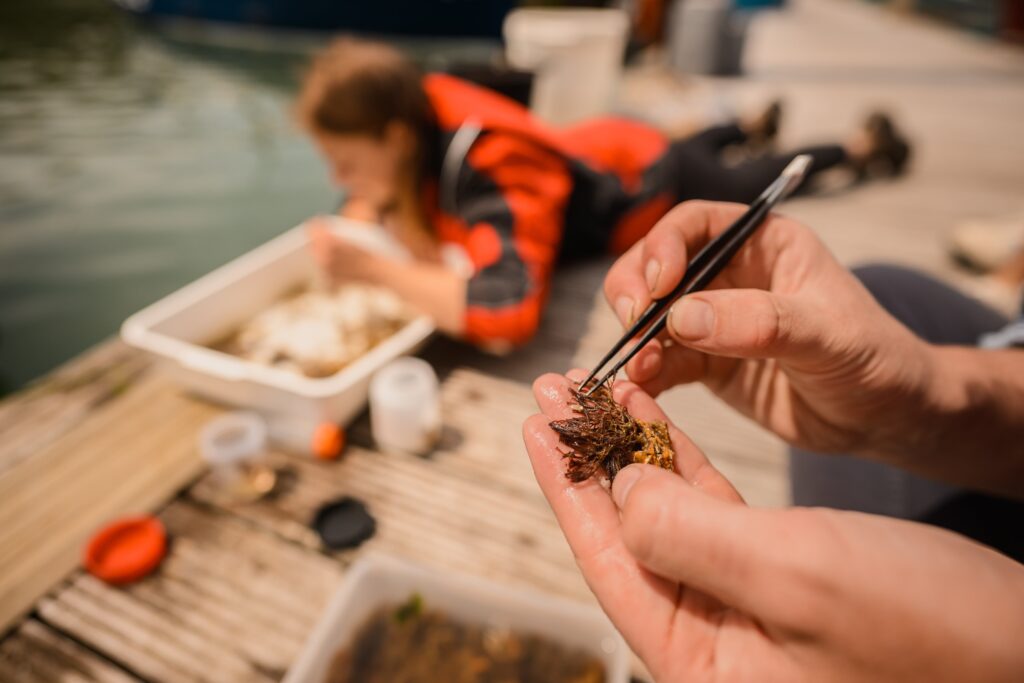Over six million occurrence points of marine species and habitats are now freely available online thanks to the dedication and hard work of citizen scientists, researchers, and data experts from the Marine Biological Association (MBA).

Occurrence records show where different species occur around the UK waters and are important for managing and conserving the UK’s rich marine biodiversity.
The MEDIN accredited Data Archive Centre for Marine Species and Habitats data for the UK (DASSH) based at the MBA provides tools and services for the long-term curation, management, preservation and publication of marine species and habitats data, within the UK and internationally as part of the global Ocean Biodiversity Information System (OBIS)
Core funded by Defra and the Scottish Government, DASSH primarily holds occurrence records – an observation of a marine species or habitat type in a particular location at a particular point in time.
Many of these records have been submitted to DASSH by research scientists and statutory bodies; but over the last few years there have been an increasing number of records also being submitted by volunteers on citizen science projects.
A huge contribution of 20,000 occurrence records came from a citizen science project run by the MBA.
From 2001 to 2019, The Shore Thing, an initiative working with schools and community groups around the British Isles collected information on rocky sea-shore life responding to climate change.
The project also helped to raise awareness of marine science and the marine environment amongst the participants and the wider community.
Head of Data, Information and Technology Dan Lear said: “Data comes from various sources including citizens and research scientists, industry partners and governmental bodies. We would like to thank everyone who contributed to this amazing feat. Open and accessible data means everyone can make informed, transparent decisions to help with the effective and sustainable management of marine and coastal ecosystems.”
DASSH ensure that the data are FAIR (Findable, Accessible, Interoperable and Reusable) and can be used, and reused alongside other data to provide a better understanding of the status of our marine biodiversity. Multiple datasets each containing useful information can be combined providing a transparent evidence base for informing marine resource management and local and national policy.
Over the last week DASSH have also processed the first environmental DNA (eDNA) dataset.
eDNA is a novel approach increasingly being used to identify species’ occurrences in distinct locations. As marine organisms live in and or pass through the sea water; they often leave small traces of DNA, a scale, some mucus, faeces etc.
This can all be picked up by analysing the sea water using DNA sequencing methods and using DNA metabarcoding. The results can be cross checked against DNA libraries to determine which organisms were present, thus creating multiple occurrence records. In this case there were over 1 million records from a single survey.
If you have any data contributions, then please contact the DASSH team or visit the website.
The DASSH Team will be at the Rock Pool Project’s Changing Tides BioBlitz events in Plymouth and Falmouth on 28th October 2023 hoping to add many more species to the 6 million currently available – find out more about these events here.